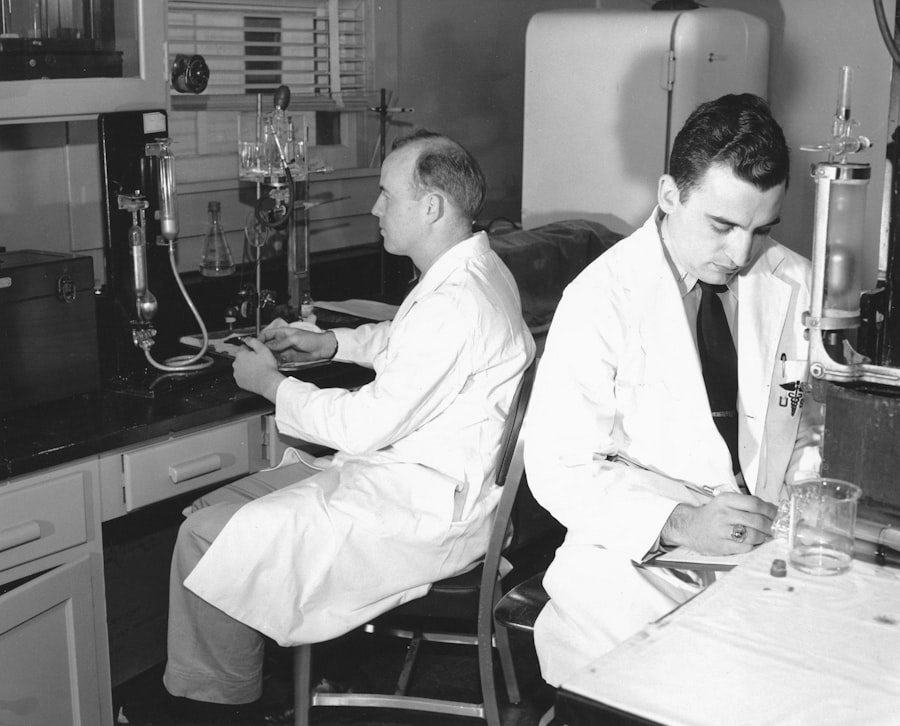Paid clinical trials are research studies conducted to evaluate the safety and efficacy of new drugs, medical devices, or treatment protocols. These trials are essential for advancing medical knowledge and improving patient care. Participants in these studies often receive compensation for their time and involvement, which can be particularly appealing to individuals seeking financial support.
The process typically involves several phases, each designed to answer specific research questions while ensuring participant safety. Clinical trials are regulated by governmental bodies, such as the U.S. Food and Drug Administration (FDA), which sets strict guidelines to protect participants.
Before a trial can begin, it must undergo rigorous review to ensure that the potential benefits outweigh the risks. This oversight is crucial, as it helps maintain ethical standards in research and ensures that participants are fully informed about what their involvement entails. For smokers, participating in clinical trials can provide an opportunity to contribute to research that may directly impact smoking cessation methods or treatments for smoking-related diseases.
Key Takeaways
- Paid clinical trials offer smokers opportunities to contribute to research while receiving compensation.
- Participants can benefit from access to new treatments and medical monitoring during trials.
- Finding trials involves searching online databases, contacting research centers, and consulting healthcare providers.
- Eligibility criteria vary but often include age, smoking history, and health status requirements.
- Understanding risks, preparing adequately, and utilizing available resources are crucial for a safe trial experience.
Benefits of Participating in Paid Clinical Trials for Smokers
For smokers, participating in paid clinical trials can offer several unique benefits beyond financial compensation. One of the most significant advantages is access to cutting-edge treatments and therapies that may not yet be available to the general public. Many clinical trials focus on innovative smoking cessation methods or medications designed to reduce nicotine dependence.
By participating, smokers may find themselves at the forefront of medical advancements that could help them quit smoking more effectively. Additionally, participation in clinical trials often includes comprehensive medical evaluations and monitoring. This can lead to improved health outcomes for smokers, as they receive regular check-ups and assessments from healthcare professionals.
Such monitoring can help identify any smoking-related health issues early on, allowing for timely intervention. Furthermore, being part of a clinical trial can foster a sense of community among participants, as they share similar experiences and challenges related to smoking cessation. This support network can be invaluable in motivating individuals to quit smoking and maintain their commitment to a healthier lifestyle.
How to Find Paid Clinical Trials for Smokers Near You

Finding paid clinical trials specifically targeting smokers can be accomplished through various channels. One of the most effective methods is to utilize online databases that list ongoing clinical trials. Websites such as ClinicalTrials.gov provide a comprehensive database of studies across the United States and worldwide.
Users can search for trials based on specific criteria, including location, medical condition, and eligibility requirements. This resource is particularly useful for smokers looking for studies focused on smoking cessation or related health issues. Local hospitals, universities, and research institutions often conduct clinical trials and may have dedicated departments for recruiting participants.
Contacting these institutions directly can yield information about upcoming studies that may not yet be listed online. Additionally, support groups and organizations focused on smoking cessation may have resources or connections to ongoing clinical trials. Engaging with these communities can provide valuable insights and recommendations for finding suitable studies in your area.
Eligibility Criteria for Participating in Paid Clinical Trials
| Eligibility Criteria | Description | Common Metrics | Typical Requirements |
|---|---|---|---|
| Age | Participant’s age range suitable for the trial | Minimum and maximum age limits | 18-65 years (varies by trial) |
| Gender | Gender-specific requirements for the study | Male, Female, or Both | Depends on study focus (e.g., prostate cancer trials require males) |
| Health Status | General health condition and presence of specific diseases | Healthy volunteers or patients with specific conditions | No chronic illnesses or specific diagnosis required |
| Medical History | Past medical conditions that may affect participation | History of allergies, surgeries, or chronic diseases | No recent surgeries or severe allergies |
| Medication Use | Current medications that may interfere with the trial | Type and dosage of medications | No use of conflicting medications within a specified period |
| Pregnancy Status | Pregnancy or breastfeeding status for female participants | Pregnant, breastfeeding, or non-pregnant | Non-pregnant and not breastfeeding; use of contraception required |
| Consent | Ability to provide informed consent | Legal age and mental capacity | Must provide written informed consent |
| Lifestyle Factors | Habits such as smoking, alcohol use, or drug use | Smoking status, alcohol consumption levels | Non-smokers or limited alcohol use preferred |
Eligibility criteria for participating in paid clinical trials can vary significantly depending on the study’s focus and objectives. Generally, researchers establish specific inclusion and exclusion criteria to ensure that participants meet certain health conditions or demographic characteristics necessary for the trial’s success. For smokers, common inclusion criteria may include age range, smoking history, and willingness to quit or reduce smoking during the study period.
Exclusion criteria are equally important and may include factors such as existing medical conditions, concurrent use of certain medications, or participation in other clinical trials within a specified timeframe. Understanding these criteria is crucial for potential participants, as they determine whether an individual qualifies for a particular study. It is advisable for smokers interested in participating in clinical trials to review these criteria carefully and consult with healthcare professionals if they have any questions or concerns regarding their eligibility.
What to Expect When Participating in a Paid Clinical Trial
Participating in a paid clinical trial involves several stages, each designed to ensure participant safety and gather valuable data for researchers. Initially, potential participants will undergo a screening process that includes medical evaluations, interviews, and informed consent discussions. During this phase, individuals will learn about the study’s purpose, procedures, potential risks, and benefits.
It is essential for participants to ask questions and fully understand what their involvement entails before agreeing to participate. Once enrolled in a trial, participants may be required to attend regular appointments at designated research sites. These visits often include assessments of health status, monitoring of any side effects from the treatment being studied, and completion of questionnaires related to smoking behavior or cessation efforts.
Depending on the trial’s design, participants may receive either the experimental treatment or a placebo. Throughout the study, researchers will collect data to evaluate the treatment’s effectiveness and safety, contributing to the broader understanding of smoking cessation methods.
Risks and Considerations of Participating in Paid Clinical Trials

While there are numerous benefits to participating in paid clinical trials, it is essential to consider the potential risks involved. One significant concern is the possibility of experiencing adverse effects from experimental treatments or medications. Although researchers conduct extensive pre-trial testing to assess safety, unforeseen side effects can still occur once a treatment is administered to a larger population.
Participants should be aware that they may experience discomfort or health complications during the trial. Another consideration is the time commitment required for participation. Clinical trials often involve multiple visits over an extended period, which can be challenging for individuals with busy schedules or other responsibilities.
Additionally, participants may need to adhere strictly to study protocols, including medication regimens or lifestyle changes related to smoking cessation. This level of commitment can be daunting for some individuals and may require careful consideration before enrolling in a trial.
How to Prepare for a Paid Clinical Trial
Preparation for participating in a paid clinical trial involves several steps that can enhance the experience and ensure compliance with study protocols. First and foremost, potential participants should conduct thorough research on the specific trial they are considering. Understanding the study’s objectives, procedures, and requirements will help individuals make informed decisions about their participation.
It is also advisable for smokers to consult with their healthcare providers before enrolling in a trial. A healthcare professional can provide valuable insights into the potential risks and benefits associated with participation based on an individual’s medical history and current health status. Additionally, participants should prepare themselves mentally and emotionally for the commitment involved in a clinical trial.
Setting realistic expectations regarding outcomes and being open to the possibility of challenges during the process can contribute to a more positive experience.
Resources for Finding Paid Clinical Trials for Smokers Near You
Several resources are available for smokers seeking paid clinical trials in their vicinity. As previously mentioned, ClinicalTrials.gov serves as a comprehensive database where individuals can search for ongoing studies based on various criteria. This platform allows users to filter results by location, condition, and phase of the trial, making it easier to find relevant opportunities.
Local health organizations and universities often have dedicated research departments that conduct clinical trials. Reaching out directly to these institutions can provide information about upcoming studies that may not be widely advertised. Additionally, national organizations focused on smoking cessation or lung health may offer resources or referrals to ongoing clinical trials tailored specifically for smokers.
Engaging with these organizations can help individuals connect with valuable support networks while exploring opportunities for participation in research studies aimed at improving smoking cessation methods and overall health outcomes.




